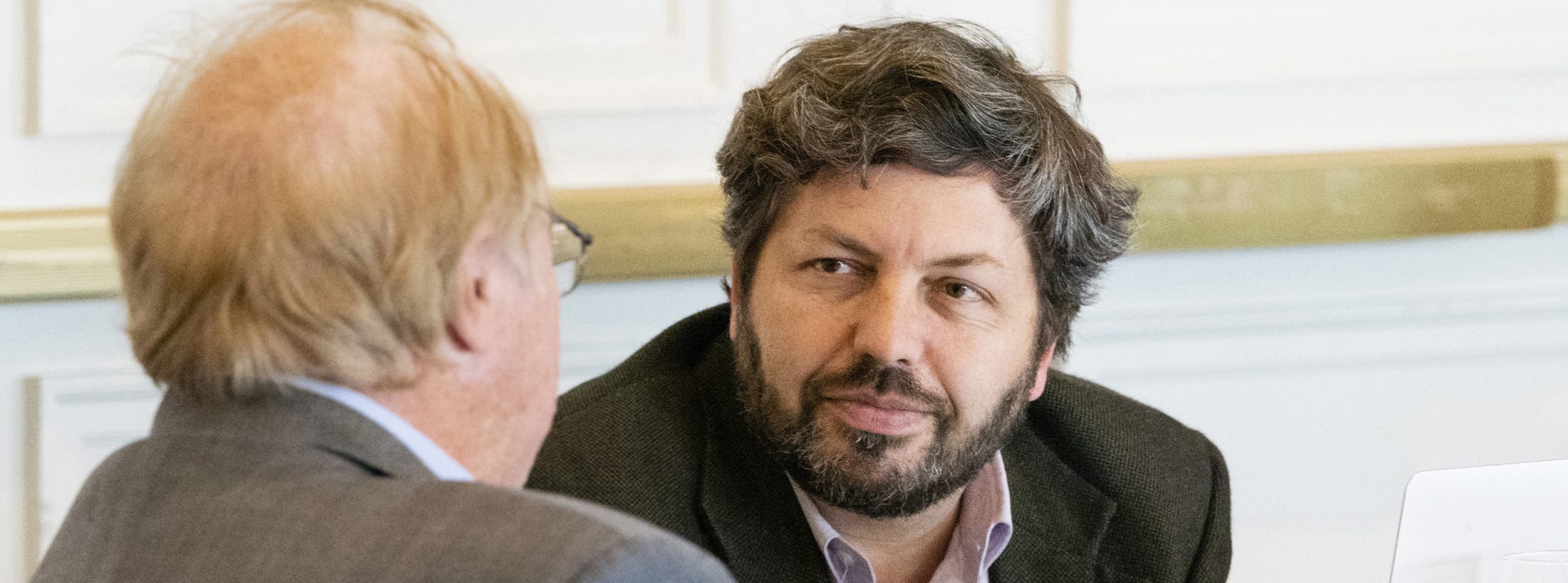

A team of researchers led by a Rutgers bioethics expert are arguing in a new paper for the use of a human challenge study that they say could shave months off of a novel coronavirus vaccine timeline.
The paper, coauthored by Nir Eyal, director of the Rutgers Center for Population-Level Bioethics, Marc Lipsitch of the Center for Communicable Disease Dynamics at the Harvard T. H. Chan School of Public Health, and Peter G. Smith of the Tropical Epidemiology Group at the London School of Hygiene & Tropical Medicine, was published Tuesday in The Journal of Infectious Diseases.
In a conventional Phase 3 trial, participants would be randomized to receive either the vaccine or control (such as a placebo), and go back to their usual living conditions, where they may or may not be exposed to the virus that causes COVID-19 disease. Researchers would follow them over time to assess whether the vaccine was effective at preventing infection.
By contrast, a human challenge study would require fewer participants than a conventional trial, and would involve exposing volunteers to the virus to determine the efficacy of the vaccine.
Initially, exposing participants to a lethal virus may seem highly unethical, Eyal noted. However, with the proper trial design and processes, the net risk for participants can remain low, or even lower than it would be outside of the trial, he explained.
“The low relative risk, that is, the risk as compared to the risk that participants would be facing outside the trial, is what makes human challenge studies such a happy marriage of accelerated vaccine testing and ethical treatment of study participants,” said Eyal, the inaugural Henry Rutgers Professor of Bioethics at the School of Public Health, and a member in residence at the Rutgers Institute for Health, Health Care Policy and Aging Research.
The evidence from a human challenge study, combined with findings from subsequent trials, could justify accelerated licensure of a vaccine, Eyal and his coauthors argued in the paper.
“It seems clear that, in the absence of an efficacious vaccine, the global death toll from COVID-19 will be enormous,” the authors wrote. “Advancing the registration and rollout of an efficacious vaccine, even by a few months, could save many thousands of lives, and commands enormous societal value.”
Media interested in interviewing Dr. Eyal may contact Jenny Noonan, jnoonan@ifh.rutgers.edu or 848-932-6636.